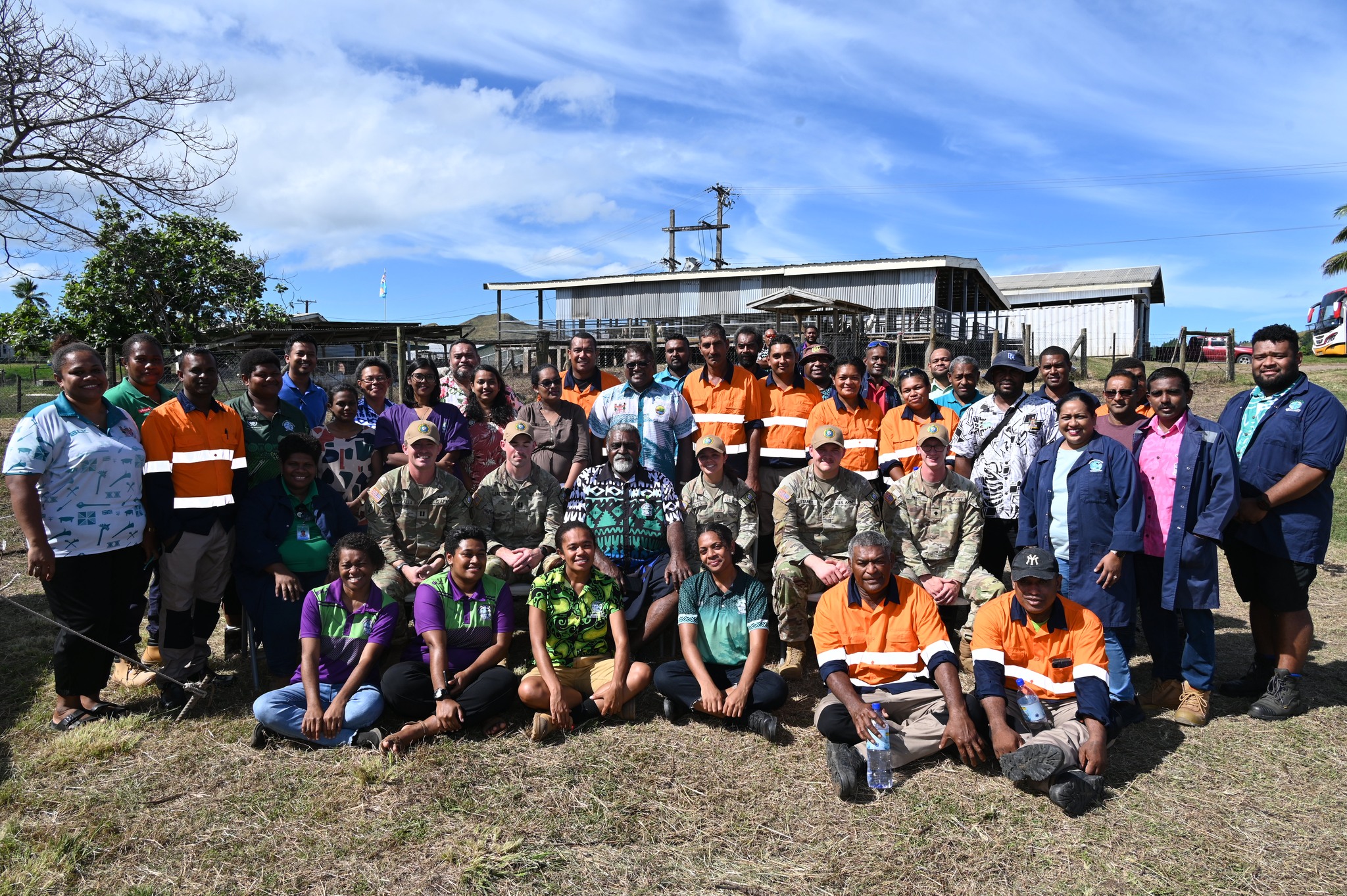FARMERS TRAINED IN SMALL RUMINANT FARMING AT NAWAICOBA
June 12, 2025

Farmers from across the Central and Western Divisions converged at the Nawaicoba Research Station today for a capacity-building training focused on small ruminant farming, particularly the husbandry and management of sheep and goats.
The field day was officially opened by the Assistant Minister for Agriculture and Waterways, Honourable Tomasi Tunabuna, who reaffirmed the ministry’s commitment to building a resilient and self-sufficient livestock sector.
“This initiative is about equipping our farmers with the knowledge, tools, and support needed to succeed in sheep and goat farming, " said Hon. Tunabuna.
Hon. Tunabuna emphasized that small ruminant farming remains a crucial thread in Fiji’s agricultural fabric, not only contributing to nutrition and household income, but also rooted deeply in cultural practices and ceremonies.
“Sheep and goats are more than just farm animals, they’re central to our traditions, whether its weddings, kurbani or funerals, often raised at the subsistence level, reflecting just how closely our communities are tied to this sector,” he remarked.
Hon. Tunabuna highlighted the urgent need to reduce reliance on meat imports, noting that in 2024 alone, Fiji imported 8,642 metric tons of sheep meat and 378 metric tons of goat meat, totaling $82.6 million.
Local production, both formal and informal, contributed just over $7.5 million to the economy.
“This is not just about closing the import gap, it’s about safeguarding traditions, building sustainable livelihoods, and empowering our people through knowledge,” Hon. Tunabuna stated.
He acknowledged the challenges the sector faces, including infrastructure limitations, dog attacks, and the need for improved genetics and nutrition.
However, he also highlighted the ministry’s interventions, an investment of FJD 2 million over the past three years into fencing kits, sheds, nutrition inputs, breeding programs, and farmer training.
“Nawaicoba and Batiri stations remain the heart of our livestock innovation. From breeding high-performing sheep to supplying free pasture and fodder planting material, these facilities are at the frontline of transforming livestock farming in Fiji,” Hon. Tunabuna shared.
He urged participants to see the field day not just as a demonstration, but as a springboard for their growth, engagement with experts, sharing experiences, and to also build a livestock sector that reflects the resilience of the people and the promise of the land.
Navua sheep and goat farmer Suresh Chandra said that this training opened his eyes to the endless opportunities of livestock farming.
"I’ve been raising sheep and goats for years, but I didn’t know what to do when medicine wasn’t available. Now I’ve learned practical alternatives and how to manage their feeding and scaling properly. I’m going back to my farm with new knowledge I can apply straight away."
The day’s program focused on
practical knowledge: breeding techniques, disease prevention, and nutrition
strategies that can significantly improve productivity and profitability for
smallholder farmers.
Hon. Tunabuna concluded by reiterating the Ministry’s vision.
“Let us continue to invest in research, embrace new methods, and build a thriving livestock sector, one that benefits farmers, communities, and the nation as a whole.”
ENDS
